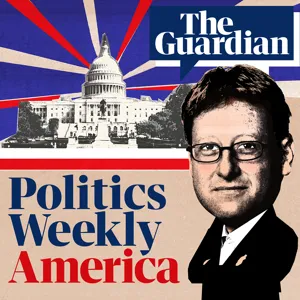Haley finally bows out as Trump and Biden prepare for rematch

Pundits saw it as one of the least exciting Super Tuesdays in American history. Nevertheless, it gave us some answers. Nikki Haley, who surprised everyone by beating Trump in the Vermont primary election decided it wasn’t enough to keep her in the race, and on Wednesday, she dropped out. Despite President Biden and Donald Trump winning easily in most states so far, there is a growing trend that neither camp can ignore - they’re both incredibly unpopular. So who should Americans who are dismayed at the choice they’ve been left turn to now? How will both Biden and Trump learn from their first contest four years ago? And what else did we learn from the other primary contests that created headlines on Tuesday? Jonathan Freedland speaks to conservative columnist Charlie Sykes about who Americans should turn to now that it’s likely Biden v Trump in November
Politics Weekly America
en-gbMarch 08, 2024
